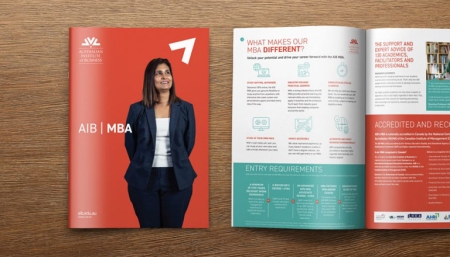Traditional MBAs and executive MBAs – an explanation

When researching the possibility of completing an MBA degree, students will find a wide range of education providers across the globe – each of which offer different specialisations and formats, with varying content and price points.
One common query is around the labelling of an MBA degree qualification. Increasingly, there are schools providing both an MBA and an Executive MBA to their students – but what is the difference between these degrees?
The gap between traditional MBA programs and Executive MBA programs is one that is generally more pronounced internationally. In the United States, the terminology is often used to distinguish the difference between full-time programs for students looking to continue their education immediately after college from those programs that are considered flexible enough to be completed whilst working full-time. For this reason, leading American Business Schools such as Harvard Business School and the Kellogg School of Management offer both a Traditional MBA program and an Executive MBA program.
One article by Rutgers Business School suggests that the Traditional MBA is for students with less than 3 years of work experience who are looking for a career boost, whereas the Executive MBA is for those already in a leadership position with an extensive amount of work experience, who are looking to complete an MBA to reaffirm their knowledge and skills. The article also suggests that the content of the course, or the level at which it is taught, differs greatly based on the level of experience of the students.
Many of the general concerns associated with the gap between a traditional and executive MBA are eradicated by the program offered by the Australian Institute of Business (AIB). Though the above-mentioned issues may affect international degrees, the regulations in Australia for post-graduate education are different – and therefore, the recognition of an Executive MBA as opposed to a Traditional MBA is also different from the above.
In Australia, all MBA programs are classified at the same qualification level by the Australian Qualifications Framework (AQF). Post-graduate degrees are considered to sit at Level 9 – regardless of the title associated with the degree.
In addition, AIB’s entry criteria ensure that all applicants are assessed based on their previous qualifications, work experience and managerial experience – this helps to strike a good balance between those who are interested in gaining a qualification for the purposes of career advancement, and those who have already significantly advanced their careers but are looking to reaffirm their management knowledge.
The practical nature of AIB’s programs allow our students to immediately apply their learning within their workplace to their own specific roles. The lessons provided to students in an MBA differ across all Australian programs, though the quality and rigour is monitored by the Tertiary Education Qualification Standards Authority (TEQSA). The differences between programs are simply pronounced through the style and format of the degree, the faculty and staff assisting a student throughout their journey, and the overall ROI of the degree.
Regardless of this, the selection of an MBA is a personal one – it depends greatly on what you hope to achieve through your studies and how you believe you will best manage the study commitment. Some people may feel that an executive MBA better suits their needs, while others will be more suited to a traditional MBA.
If you are interested in learning more about AIB’s MBA programs and methodology, you can visit our website at www.aib.edu.au.





